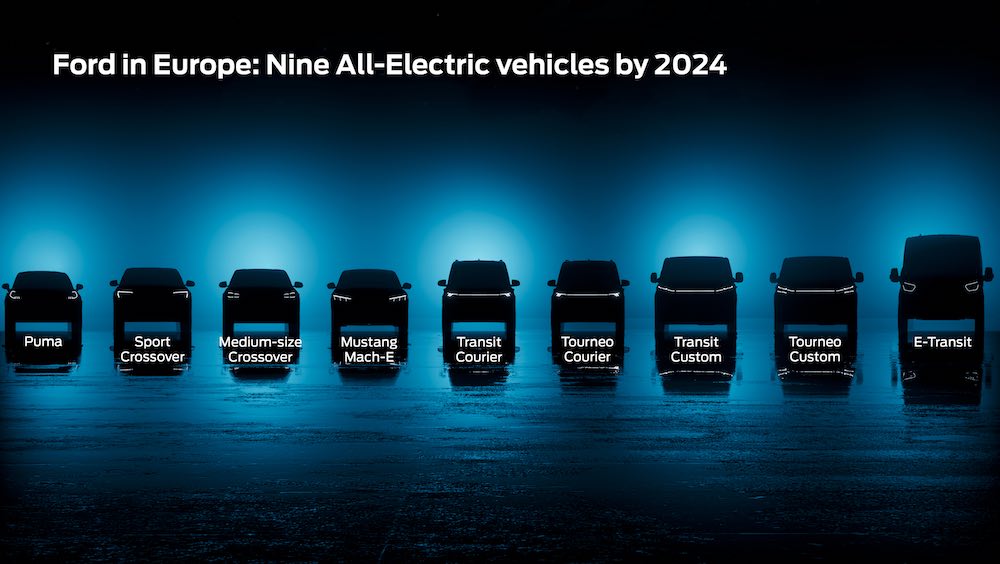Ford Europe plans to launch seven new electric cars and vans by 2024, including a five-seat medium-sized crossover, an electrified version of its top-selling Ford Puma passenger vehicle, and four new electric models in the Transit range.
Ford will invest $US2 billion into building its new electric passenger vehicles at its Cologne Electrification Centre in Germany, where the company expects vehicle production to increase to 1.2 million over the next six years, reaching annual sales of 600,000 units in 2026.
The investment will also see Ford build a new battery assembly plant at its Cologne facility, which is expected to start operations in 2024.
The promised seven new electric vehicles and vans will significantly increase the number of Ford electric vehicles available in Europe, building on the all‑electric Mustang Mach-E and its performance sibling the Mustang Mach-E GT, which are both currently available, along with the E-Transit which is coming in the next few months.
Ford is promising four new electric models as part of its Transit range, including an all-new Transit Custom one-tonne van and the Tourneo Custom multi-purpose vehicle, which will be followed by the next generation Transit Courier van and the Tourneo Courier multi-purpose vehicle.

In addition to the two new Transits and two new Tourneos, the E-Transit already set to debut soon and the Mustang Mach-E, Ford is promising an electric version of its top-selling passenger vehicle in Europe, the Ford Puma, as well as a sport crossover and a medium-size crossover.
“Our march toward an all-electric future is an absolute necessity for Ford,” said Stuart Rowley, chair, Ford of Europe.
“It is to meet the mobility needs of a transforming Europe that calls out for more innovation and a total commitment to the customer. But it is also about the pressing need for greater care of our planet, which is why we are committing to making a positive contribution to society and reducing emissions in line with the Paris Climate Agreement.
“These new Ford electric vehicles signal what is nothing less than the total transformation of our brand in Europe – a complete, new generation of zero-emission vehicles, optimised for a connected world, offering our customers truly outstanding user experiences.”
Rowley also announced that Ford Europe would accelerate its move to an all-electric portfolio of passenger vehicles by 2030, and only zero emission commercial vehicles by 2035. Ford is also targeting carbon neutrality across its European business by 2035, which will impact both its Scope 1 and Scope 2 emissions.
Ford is also pushing forward with the production of its own electric vehicle batteries, announcing a joint venture business with SK On and Koç Holding to build one of the largest manufacturing plants for commercial vehicles in Europe.
Located close to Ankara in Turkey, the gigafactory will manufacture high nickel NCM batteries, with production to start at the earliest by 2025 at an annual capacity of between 30 to 45GWh.
The new JV battery production facility will drive Ford’s goals of securing in-house battery production capacity of 240GWh by 2030, along with the company’s BlueOval SK joint venture with SK On in Kentucky, US, which will have production capacity of 129GWh.
Joshua S. Hill is a Melbourne-based journalist who has been writing about climate change, clean technology, and electric vehicles for over 15 years. He has been reporting on electric vehicles and clean technologies for Renew Economy and The Driven since 2012. His preferred mode of transport is his feet.

